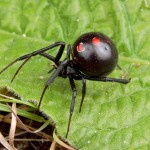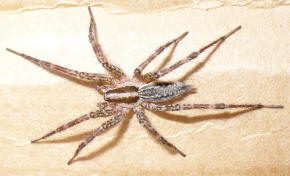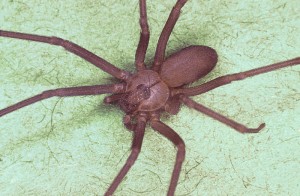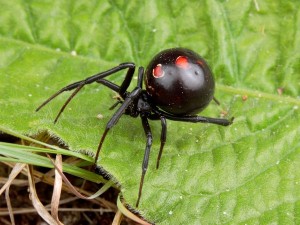Spiders: The Good, the Bad, and the Ugly

The Good:
Spiders are a natural controller of pests and insects. They are very beneficial predators and they serve a significant role in keeping populations of many pests in check. Without spiders, our world would be over-run by other insects. Most spiders are non-aggressive, and very few spiders have fangs capable of penetrating human skin – only about 200 species from 20 genera of spiders have bites considered dangerous to humans.

Grass Spider
Grass spiders are an example of what could be considered a “good” spider. They are very common in Pennsylvania, and they can be recognized by the large, somewhat concave sheet-like web with a funnel or tunnel located off to one side. They are very beneficial predators, they rarely leave their webs, and they don’t often enter homes.

Brown Recluse Spider
The Bad:
The Brown Recluse is a fitting example of the bad side of spiders. While they are rarely aggressive, when they do bite, it is seriously venomous. The brown recluse bears a potentially deadly hemotoxic venom – hemotoxins destroy red blood cells. One of the main characteristics of a typical bite is a hard and sharp sensation on the skin, followed by intense pain and swelling. The brown recluse spider is resilient, and can tolerate up to six months of extreme drought and scarcity or absence of food.

black widow spider
The Ugly:
The Black Widow spider is notoriously the worst of the worst when it comes to spiders. Their bite is feared because its venom is reported to be 15 times stronger than a rattlesnake’s. In humans, bites produce muscle aches, nausea, and a paralysis of the diaphragm that can make breathing difficult. They are easily distinguished by the red hourglass on the back of their jet-black body. It is believed that the Black Widow spider was given that name based on the observation that some female black widow spiders have been known kill and feed upon their mates.